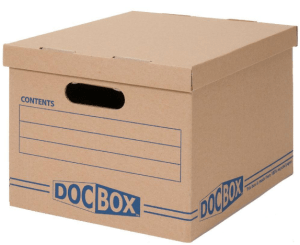I used this game at the end of class last week. It was just for fun, although I guess you could tweak it to cover certain vocabulary. It involves quick thinking from the students, a bit of randomness and lots of laughing.
The inspiration? Richard Osman’s House of Games (© BBC). I love this show – if you haven’t watched an episode then I thoroughly recommend it!
The final round is always ‘Answer Smash’. You get given two clues, for example:
Clue one: what’s this?
Clue two: a famous university in England…
ANSWERS: BOX, OXFORD
The spellings crossover a bit. The aim of the game is to guess both clues and smash them together to make a word!
ANSWER: BOXFORD
I didn’t use any images during my game as I prepared my clues about 10 minutes before class (B1 level). That meant all my clues were good listening practice and involved quick vocabulary recall. I admit they were random(!) but that was part of the fun! Here are some example answers I used:
shop, option = shoption
Harry Potter, termites = Harry Pottermites
paper, person = paperson
cat, attic = cattic
mug, ugly = mugly
pig, igloo = pigloo
bin, internet = binternet
went, enter = wenter
student, dentist = studentist
smart, artist = smartist
hotel, television = hotelevision
benefit, fitness = benefitness
cooking, kingdom = cookingdom
The students found it really fun to play with language like this.
Want to try? Can you guess these?
CLUE 1: coldest season in the UK
CLUE 2: a break in a theatre performance
CLUE 1: country in South-east Asia beginning with V
CLUE 2: a traffic light colour
(answer in the comments if you want!)
Adapting this game…
I’m trying to add a learning focus to this game. I’m thinking that a focus on matching sounds rather than matching spelling might be useful. E.g. smashing together schwas!
Teacher + adapt
Something like that. This is a work in progress… Any ideas? Have you used this game or anything similar before?
(box image: homedepot.com)
For more classroom games based on TV game shows, see this older post.
Categories: Lesson Ideas, vocabulary


I’ve done this with portemanteau words but not with ‘nonsense’ words. It’s a fun way to practise pronunciation eg which syllable takes the primary stress and finding the schwa sounds.
LikeLiked by 1 person
Cool! Can share an example of possible words?
LikeLike
I love letting learners in on the simple fun of playing with the language – a bit of nonsense verse like “The Owl and the Pussycat” is great fun. Or creating crazy animals together with YLs (zebronkeyoats – zebras + monkeys + goats) – a lot of potential fun their. And when they’re having fun playing with English, English becomes meaningful for them, they develop their English “voice”. I love your ideas – thanks for the inspiration!
LikeLiked by 1 person
Great! I’m with you on that one – making it meaningful for the learners. I sometimes post ideas thinking “I better say there’s more value in this, rather than just fun”, but sometimes that fun is liberating and inspiring for the learners. I’d love to see what a zebronkeyoat looks like. Cheers for sharing William!
LikeLike
Thanks for the idea, always useful to have more in the toolkit!
Also, if useful for your lessons, My website has a load of free resources and apps ( i made them in the year off !) feel free to check it out. the game are also online. https://makingenglishfun.com/portfolio/
LikeLiked by 1 person
Cheers, just taking a look!
LikeLike
Thanks, any advice as im new to wordpress, would be great!
LikeLike
Could get the students to make their own word smash clues using new vocabulary and then deliver the to the class. They could prepare in groups and then get points as teams for correct answers. This would help the learners to remember the new vocabulary and (perhaps more importantly) greatly reduce the prep time for the teacher!
LikeLiked by 1 person